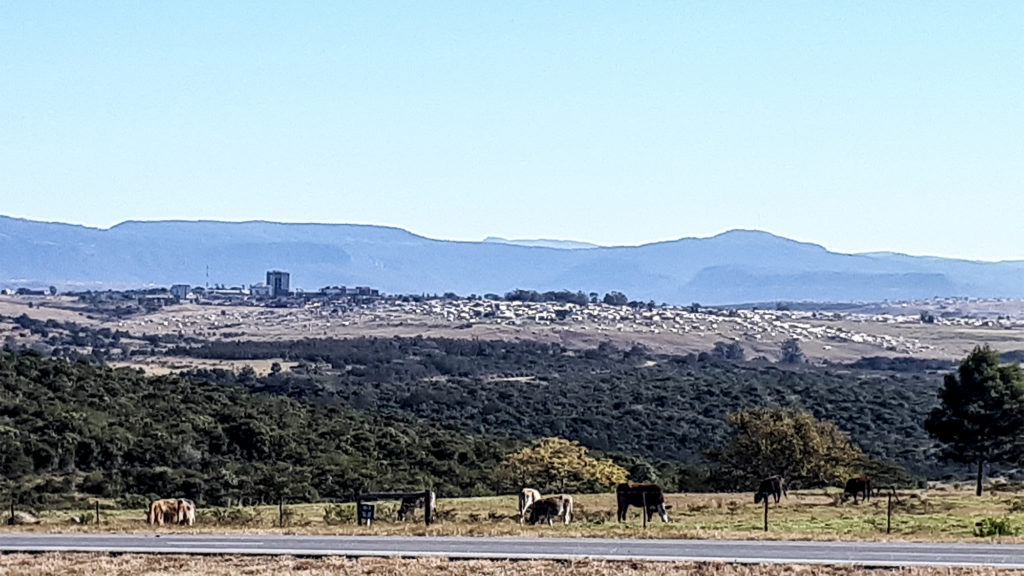A first-of-its-kind meeting aimed at making provincial parliaments more inclusive and transparent saw the Speaker of the Eastern Cape Provincial Legislature, Helen Sauls-August, meet face to face with civil society organisations on Tuesday 15 October. Sauls-August was participating in Putting the People in the People’s Parliament – a project hosted by a collective of organisations.
Representatives of the Legislature, Chapter 9 institutions, other civil society organisations and researchers met in a three-day round-table dialogue at a venue in King William’s Town that explored their complementary roles in improving the accountable governance of public services.
“Legislatures are a critical space to ensure direction and oversight over service delivery, and they must play a role in ensuring that the people of the country are informed of and involved in governance,” said Zukiswa Kota, Head of Monitoring and Advocacy at the Public Service Accountability Monitor (PSAM). She was speaking on behalf of the 12 participating civil society organisations (CSOs) including PSAM.
“We are encouraged by the Speaker’s acknowledgement that ‘more needs to be done’ to improve the accessibility of the Legislature. We are encouraged by Honourable Sauls-August’s commitment to ensuring that the 6th Legislature is more open, inclusive and responsive to the people of the Eastern Cape,” the collective said.
“We reiterate the provincial office of the South African Human Rights Commission’s emphasis on the critical complementary role played by CSOs and Chapter 9 institutions to the legislatures in promoting a human rights-oriented approach to service delivery. Strengthening our institutions of democracy is critical to ensure that other human rights are realised for people.”
The collective said that given increasingly constrained public sector resources, they applauded the Legislature’s efforts to enable elected representatives to undertake deeper scrutiny of provincial finances.
“Noting the severe resource constraints of Chapter 9 institutions, such as the provincial branch of the Human Rights Commission , we call for increased financial allocations and support from the provincial coffers to enable these important institutions to fulfil their role.
“The members of the Putting People in People’s Parliament are encouraged by the tone and outcomes of this engagement,” their statement reads. “We are committed to supporting the legislature in it’s efforts to create an open, accessible and effective democratic space in the province, and urge the [provincial parliament]to continue in this manner of collaboration.”
According to their statement, the following emerged from the discussions:
- The Speaker of the Eastern Cape Provincial Legislature committed to exploring mechanisms to improve communications from and about committee sittings. This constitutes an important indicator of the possibilities for deeper, more constructive dialogue.
- Voter and youth disengagement in electoral and parliamentary matters was acknowledged to be of critical concern. This needs to be a central focus of the provincial parliament’s strategic innovations.
- It was acknowledged that information communications technology (ICT) systems must be introduced so committee meetings can be recorded and disseminated to the public on different media platforms.
“It was important that the Speaker listened to our (CSO) views and responded in a constructive way to the problems and challenges we were raising. Hopefully the relationships can continue to grow,” said one of the participants, Alicedale social worker, Phumla Gojela.
In a session later in the week, Grocott’s Mail’s Kathryn Cleary and Sue Maclennan, Rhodes Music Radio’s Raymond Mojapelo and Rod Amner from the Rhodes School of Journalism and Media Studies offered participants insight and tips on how organisations can use community media to most effectively share their goals and achievements.
Putting People in the People’s Parliament – the collective:
Entlango Primary Agricultural Cooperative; Imbokodo Women’s Movement; The Mqanduli Advice Office; CARE Alicedale; The Public Service Accountability Monitor (PSAM); Flagstaff Advice Centre; Interchurch Development Agency (ILDA); Qunu Advice Office; Berlin Advice Office; Dordrecht Advice Office; Women and Democracy Project, Dullah Omar Institute; Social Change Assistance Trust.
What they’ve called for
The members of the Putting People in the People’s Parliament collective called on the provincial legislature to exercise robust oversight to tackle corruption in the public service. They also called on:
- The Portfolio Committees of Finance, Public Accounts and Public Participation to ensure that opportunities for public comment on the Bill to improve financial oversight are well publicised;
- The Speaker and leaders of the provincial parliament to partner with the SA Human Rights Commission to strengthen oversight;
- The legislature to partner with broad civic formations to create platforms for deeper public participation;
- The Portfolio Committee for Public Participation, with support from CSOs, to find new ways to directly engage with Eastern Cape communities;
- The Legislature to open a support desk for civil society organisations and ensure wider distribution of information from the legislatures across the province;
- Portfolio committees to facilitate contributions from the public and CSOs and include these in their discussions;
- Portfolio committees to provide for follow-up mechanisms from public hearings and visits.


